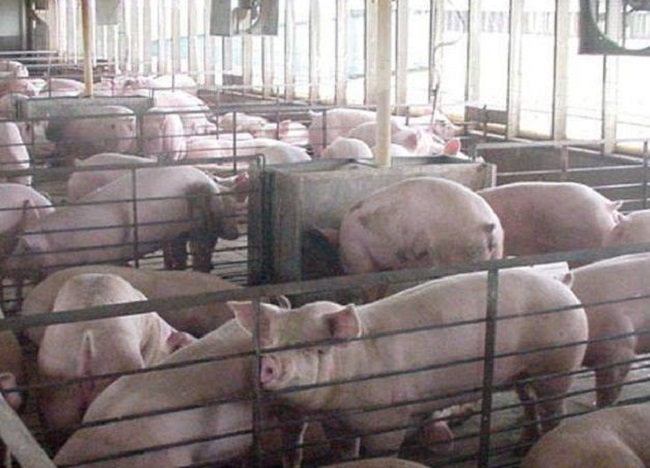
Dallas County CAFO king Robert Manning is nearly doubling the number of hogs in his concentrated animal feeding operations with the construction of five new facilities, three near Dallas Center, one near Granger and one in Lincoln Township west of the Washington Township School.
Manning has operated two CAFOs in northwest Dallas County for some years with a combined capacity of about 15,000 head of hogs. The five new wean-to-finish confinements of about 2,500 head each will add about another 12,500 animals.
The legal descriptions of the CAFOs near Dallas Center:
- Paul Pork LLC, Grant Township, 210th Street, NW 1/4 of NE 1/4 of Sec. 21 T80, R26
- Kent Pork LLC, Adel Township, S. Avenue, SE 1/4 of NE 1/4 of Sec. 1 T79 , R27
- Charlie Pork LLC, Adel Township, 260th Street, SW 1/4 of SW 1/4 of Sec. 12 T79, R27
The legal description of the CAFO north of Linden and west of Washington Township School:
- Gift Pork LLC, Lincoln Township, D. Avenue, SE 1/4 of NE 1/4 of Sec. 21 T80, R29
The legal description of the CAFO north of Granger:
- Connolly Pork LLC, Des Moines Township, 260th Street, NW 1/ 4 of SE 1/4 of Sec. 26 T81, R26
Iowa Department of Natural Resources (DNR) regulations vary according to the size of a CAFO. All structures need construction permits, but a confinement housing 1,249 hogs or fewer does not require a DNR-approved manure management plan (MMP). CAFOs with 2,499 hogs or fewer do need an MMP but not a master matrix score.
Hog barns with more than 2,500 head need both an MMP and a master matrix score and are subject to review by county boards of supervisors as well as the public.
News of Manning’s new CAFOs spread quickly over the weekend, and the controversial hog factories sparked the usual divided opinions.
Dallas Center Mayor Michael Kidd said he would “look into what action we can do to prevent the confinement building so close to the city. Unfortunately, I believe this location is outside our city limits.”
Dallas Center city councilors are looking eastward and southward for annexation possibilities, and Manning’s new hog confinements will lie in the path.
“It will be interesting to see the thoughts of landowners in the areas outside the city limits when they are contacted to gauge their interest in annexation,” said Dallas Center City Council member Curt Pion.
Eric Wessels of rural Dallas Center, who has lived downwind of a Manning CAFO for several years, was dismayed at the news of more hogs.
“The goal is to stop the building of CAFOs in locations adjacent to people who will suffer from the smell and disease that follow,” Wessels said. “Why should I have to put up with this when the guy building it lives comfortably in Panora?”
He said planting windbreaks around the perimeter of CAFOs is one way to reduce the odor.
“Maybe I’m biased, but I grew up on a farm with multiple confinements,” said Tricia Lynn of Minnesota. “Instead of complaining about the smell, what would you have them do differently? It’s probably not possible for them to build elsewhere as this is likely the land they own. Food has to come from somewhere and if farmers don’t raise it, who will? I’m not saying being irritated is wrong, just not sure what the goal is here.”
Wessels said the pork producers have too free a hand in Iowa and end up trampling the rights of other landowners.
“This is industrial production and should be treated as such,” Wessels said. “There needs to be additional regulations to protect those who may have their life savings invested in a home that no longer has any value with one of these across the street.”
Hog farmers also have their staunch defenders in Dallas County, such as Emily K. Wynn, whose family has farmed north of Dallas Center for five generations.
“We have three 1,100-head-capacity hog barns,” Wynn said, “and we are a family farm that also consists of cattle and a beef business, where we sell our family-raised beef and bratwurst at Baker’s Pantry in Dallas Center. My grandparents, dad, brother and I are DC-G graduates. My 96-year-old grandma still lives in Dallas Center. We are all involved in the community, and I just want my side of the new hog barn discussion put out there.”
Wynn encouraged dialogue among everyone concerned with the future of rural development.
“I just want all to know,” Wynn said, “there are many of us farmers who take great pride, love and responsibility in caring for your meat choice along with the environment and water quality. As farmers, I believe it is our responsibility to answer your questions and concerns.”
Michael Burgher, a teacher at Dallas Center-Grimes High School, said the effects of CAFOs on Dallas Center’s growth and development should be considered.
“Think about the city revenue from business and residential development,” Burgher said. “Would a pool, BBQ restaurant or elementary school be better off next to a hog confinement? Would a home sell faster? What about water quality? The old-school Dallas Center leaders stifled growth for years, and it’s things like this that will make places like Adel boom while Dallas Center goes the way of the Dodo.”
Wessels has joined environmentalists — and the Des Moines Register — in calling for a statewide moratorium on new CAFO construction.
“Actually,” Wessels said, “the goal is to stop the construction of CAFOs completely until Iowa can figure out how the continued expansion of this industry can be properly regulated to safeguard the state from ongoing degradation.”
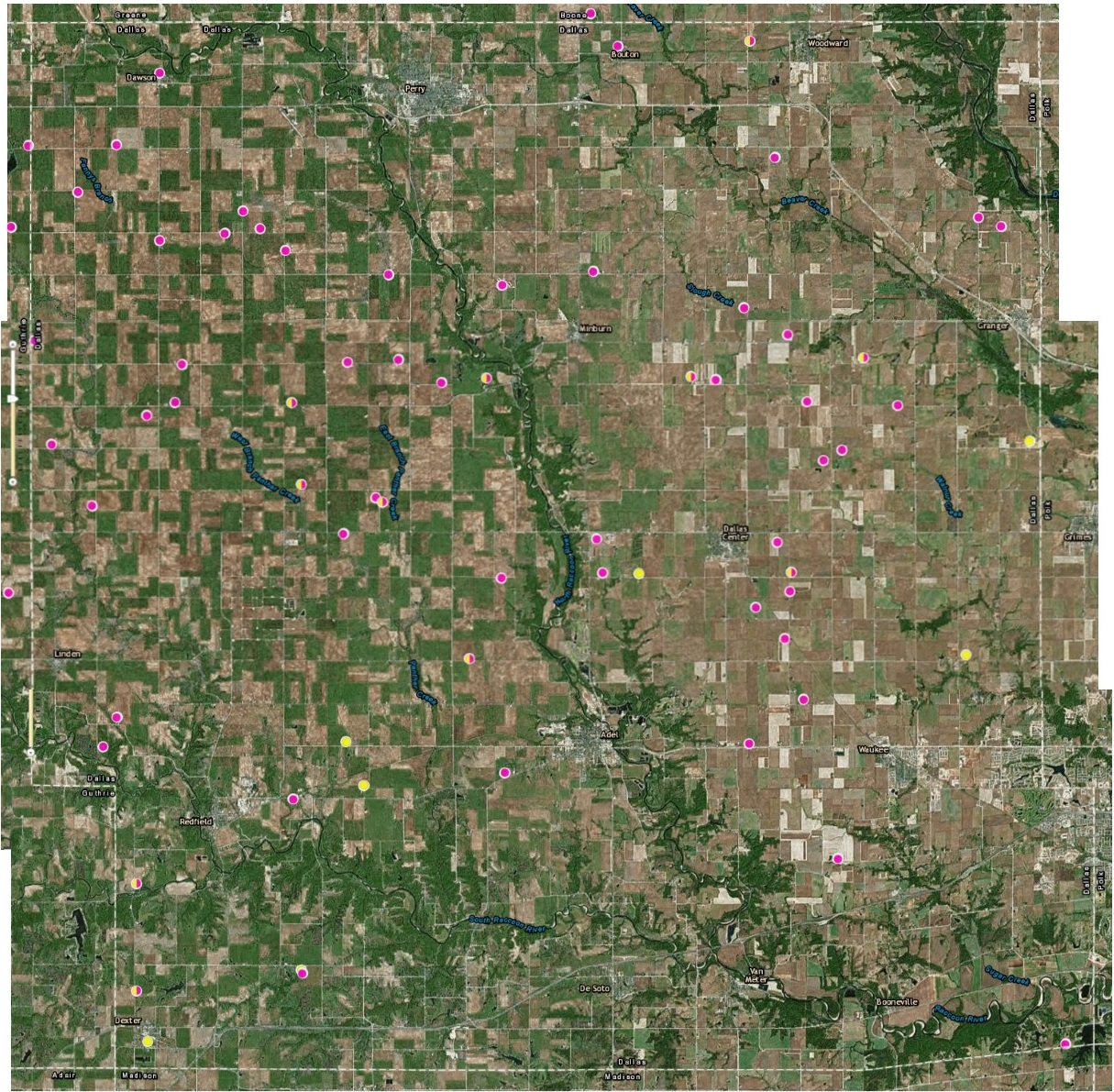






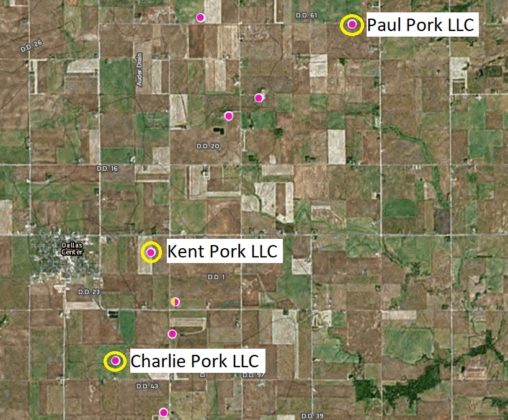
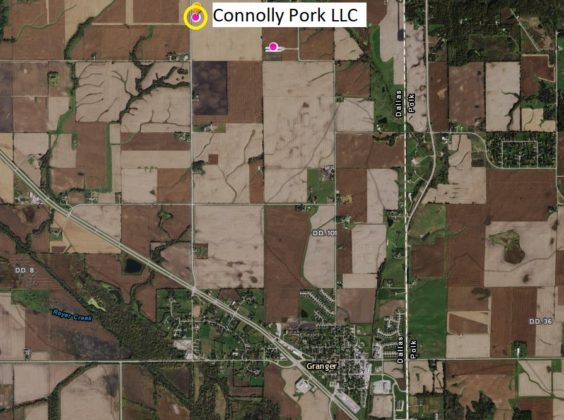
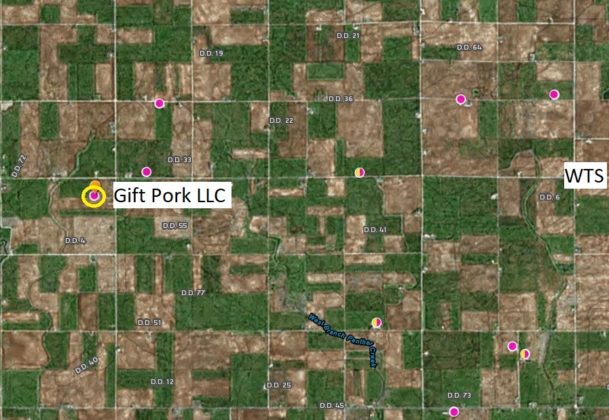
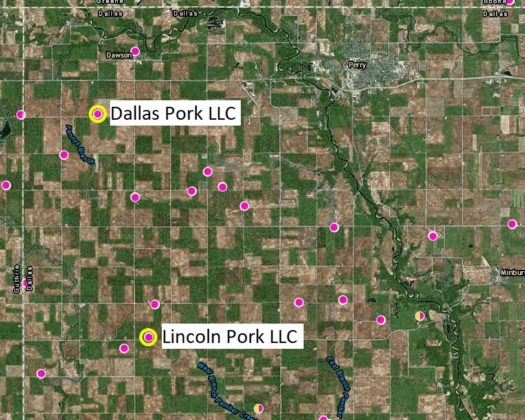











Family farm? Family farm? There are only a scant few family farms left since the 1980s, and those are generally about half the size of any given Iowa county. Face it. Meat production is an industry and is no longer the bucolic, down to earth, mom and pop set ups as in the past. As an industry, Big Ag gets away with far too much disregard for the environment. Perhaps the vegans are right. It seems to be animal protein is bad not just for our bodies but for the planet as well.
[…] of rural Minburn, one of the meeting’s DCFN organizers. Manning is in the process of nearly doubling the number of hogs in his Dallas County CAFOs, with three new confinements rising near Dallas Center, one near Granger and one in Lincoln […]